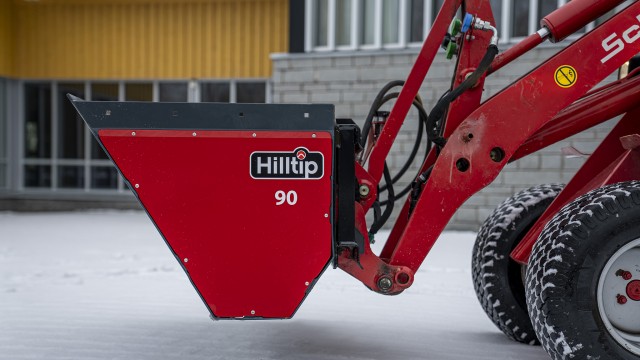This audio is auto-generated. Please let us know if you have feedback.
Twenty-five-year DPR veteran Jack Poindexter calls working with the firm’s tradespeople “a privilege.”
As the self-perform work group leader for the Redwood City, California-based firm’s Northwest region, Poindexter has recently helped pilot an effort to create more respect and dignity for those on the jobsite via a simple measure: cleaner, more comfortable bathrooms.
Be they trailers or facilities attached to an existing utility line, Poindexter claims the new stations have made a big difference for the DPR employees on the jobsites daily.
DPR’s actions may represent a trend, too. Starting this month in British Columbia, a new law requires jobsites with more than 25 workers to use flush toilets as opposed to porta-potties, per the Vancouver Sun.
Here, Poindexter talks with Construction Dive about the impact of the new bathrooms, the value for specific groups and the cost-benefit analysis of ditching porta-potties.
The following has been edited for brevity and clarity.
CONSTRUCTION DIVE: What has been the impact of installing new, cleaner bathroom facilities on some DPR jobsites?
JACK POINDEXTER: Of course, people appreciate it. If I asked you to go to an office every day and your restrooms were in the parking lot and were porta-johns, you probably wouldn’t come to the office that much and it wouldn’t feel great. It wouldn’t feel like a facility.
So we decided to make the move. About a year ago we said, “Hey, across the Northwest, this is what we want to have as a standard for all of our projects.”

Jack Poindexter
Permission granted by DPR Construction.
There’s a lot of options out there that didn’t exist before, whether it’s restrooms that can be put into a high-rise building and tied to its utilities, or big trailers that you can sit on the ground at a larger site or even some modular solutions that have full a restroom with handwashing facilities. There’s people who have religious needs to wash their hands during the day, and we should respect that: Maybe a pump bottle full of foam isn’t the right thing.
The intention is not just the restroom, though. Everybody needs to have some place to go and have a break outside of the sun. We should have some type of ventilation to make sure it’s staying reasonably cool or reasonably warm in the wintertime.
The jobs that we’ve done this on already, the craft are just happier. I try to make sure I’m engaging with workers on the site and just saying, “How are you doing?” And it’s overwhelming when people are like “This is awesome. I so much prefer this. This is a jobsite I’d rather go to than other jobsites.”
Some people have reported leaving the jobsite to use a public restroom elsewhere. Was saving that time a factor in the decision?
I don’t know if it saves time. It’s just a human aspect to it. Like, could you imagine you got to go walk across the road to use a restroom? Because it doesn’t feel like the right place? You don’t feel safe or you don’t feel appreciated, or the condition of the facility is terrible?
I did residential construction coming up and my college summers were spent as electrician in residential. It’s awful. Why are we asking human beings to do this? It’s a little bit degrading.
I think there’s really a perception issue with people and craft. Sometimes they’re perceived as “lesser-than.” Even simple things like coffee. If you go in a jobsite trailer, there’s a coffee machine or two. Why wouldn’t we have coffee and water easily available to everybody on the jobsite? Not just the people that are sitting in the office, the administrative folks.
The industry somehow created this differentiation between salaried administrative employees and hourly employees. And that just doesn’t feel right.
We’re trying to get that playing field level so people feel valued, they feel appreciated, they feel like they work in an environment that’s really built for them. And we’ve seen it happen plenty of times where, when people raise issues, they’ll bring up quality issues before they become a big problem.
So there’s actually some business case for this, too, where you have more and more people who are engaged in the success of the project as opposed to just doing a job.
It sounds like this was a value-add in a lot of ways. What was the impact on budgeting or planning?
I think it really depends. Every job’s unique. We did a study on a job in south San Francisco where we had the ability to set up restroom trailers and tie them into permanent utilities. We found that over time we paid that off. It was actually a cost-neutral move to provide a much better standard on site.
Not every jobsite’s like that, though. So at some point you might be making an investment on a project. But we believe pretty strongly that the investment pays off on the other side.
People are more productive when they’re happy in their environment. You’ve probably had jobs over the years where you’re like “I’m not super psyched about going to work today.” Think about your productivity when you’re feeling that way. And think about your productivity when you’re satisfied.
There’s so many more bathroom options than there used to be. When you put a porta-john on site, someone’s got to come pump it, come clean it, haul it back and forth. I think people’s mind jumps to the idea that the newer options must be more expensive, but there’s times where dollar-to-dollar it’s the same, but there’s all the value at the backend that I sincerely believe pays off pretty well.
Portable restrooms have a reputation for featuring vulgar graffiti on top of already being an unpleasant environment. Was that a factor in the decision to upgrade? Is it easier to control in the newer facilities?
It’s a little bit easier to control and police, maybe. I think we thought of it as though if you raise the standard for where people are living, they actually tend to take better care of it too. And that’s what we’ve seen time after time.
If you provide people with a better workplace, they also take care of it better. The environment contributes to the attitude.
Now at the same time we were also ensuring we’ve got some workplace harassment and violence prevention programs and hotlines and those kinds of things where we’re saying, “Whether it’s graffiti in a restroom or it’s verbal, it’s not acceptable on our jobsites.”
I think construction historically has not had a great reputation for that, but we want all of our people and our trade partners who work with us to get the same experience as you would have in our offices. So getting those anti-harassment posters out, having hotline people can reach out to, it helps, but at the same time providing a higher standard of living on a jobsite, people actually look at it like there is a different expectation.
Note: This article have been indexed to our site. We do not claim legitimacy, ownership or copyright of any of the content above. To see the article at original source Click Here













